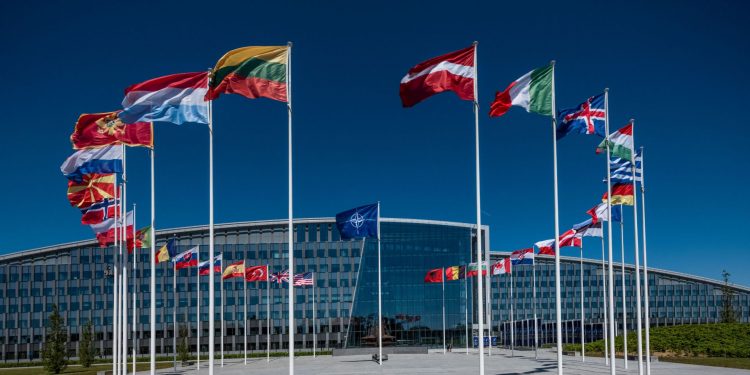Sweden on Monday officially announced it will apply for NATO membership as a deterrent against Russian aggression, entering a “new era” as it reverses two centuries of military non-alignment.
“The government has decided to inform NATO that Sweden wants to become a member of the alliance,” Prime Minister Magdalena Andersson told reporters a day after neighbouring Finland made a similar announcement.
“We are leaving one era and beginning another,” Andersson said of the dramatic turnaround of her country’s position less than three months after Russia’s invasion of Ukraine.
Sweden’s NATO ambassador would “shortly” inform the alliance, she said.
“Sweden is one of our closest partners & membership would strengthen the security of Euro-Atlantic area & Sweden at a critical time,” NATO chief Jens Stoltenberg wrote on Twitter following a telephone call with Andersson.
Sweden and Finland have both expressed a desire to act in lockstep on NATO membership. They are expected to submit their applications jointly this week.
Russian President Vladimir Putin on Monday warned that NATO’s expansion may trigger a response from Moscow.
The expansion poses “no direct threat for us… but the expansion of military infrastructure to these territories will certainly provoke our response,” Putin said during a televised summit meeting of the Collective Security Treaty Organisation, a Moscow-led military alliance.
Andersson acknowledged Sweden would be “vulnerable” to “attempts to scare and divide us” in the interim period before its application is ratified.
However, Stockholm has received security assurances from key partners, including the United States, Britain, Germany, France and the Nordic countries, she added.
She expected “it shouldn’t take more than a year” for the alliance’s 30 members to unanimously ratify Sweden’s membership application.
But Turkish President Recep Tayyip Erdogan on Monday again confirmed Ankara’s opposition to Sweden and Finland joining NATO, citing the countries’ unclear stance against terrorism.
Turkey has accused Sweden and Finland of harbouring militants from the Kurdistan Workers’ Party, which has waged a decades-long insurgency against the Turkish state.
Swedish Defence Minister Peter Hultqvist said Monday Sweden was sending a delegation to Turkey for talks with officials, but Erdogan scathingly rebuffed Stockholm’s efforts at diplomacy.
“They say they will come to Turkey on Monday. Will they come to persuade us? Excuse us, but they shouldn’t bother.”
A diplomatic source said Turkey blocked a NATO declaration on Monday in favour of Sweden and Finland’s membership and that Erdogan alone took the decision.
Soaring support
Sweden’s announcement was expected after Andersson’s Social Democratic party on Sunday backed membership, in a dramatic U-turn after having opposed the idea since the birth of the Western military alliance.
Six of eight parties in parliament, constituting a very broad majority, are in favour of membership. Swedish public support has also risen dramatically to around 50 percent — with about 20 percent against.
In Helsinki, support for joining the alliance has surged even more dramatically, with more than three-quarters of Finns in favour of joining, almost triple the level seen before the war in Ukraine began on February 24.
Finnish lawmakers on Monday launched a marathon debate on the issue with more than 150 of 200 MPs asking to speak, following a NATO membership proposal presented on Sunday by President Sauli Niinisto and Prime Minister Sanna Marin.
“Our security environment has fundamentally changed,” Marin told parliament.
“The only country that threatens European security, and is now openly waging a war of aggression, is Russia,” she said.
Memories of war
Finland, which shares a 1,300-kilometre (800-mile) border with Russia, has a long shared history with Russia.
It spent more than a century as part of the Russian empire until it gained independence in 1917. It was then invaded by the Soviet Union in 1939.
Finns put up a fierce fight during the bloody Winter War, but were ultimately forced to cede a huge stretch of their eastern Karelia province in a peace treaty with Moscow.
An overwhelming majority of Finland’s 200 MPs — at least 85 percent — back the decision to join NATO.
During the debate in Sweden’s parliament, Andersson acknowledged that Sweden’s decision to join NATO was closely tied to Finland’s.
As the only country in the Baltic Sea region outside of NATO, Sweden would find itself “in a very vulnerable position”, she told parliament.
She also stressed Sweden’s “extensive military cooperation” with Finland and said her country’s defence capability would decrease if Helsinki focused more on cooperation with NATO countries as a member of the alliance.










